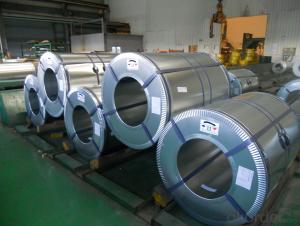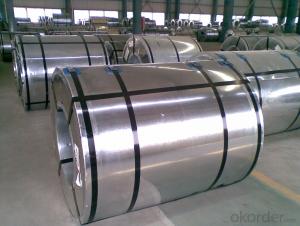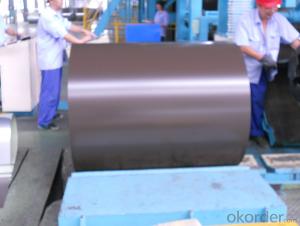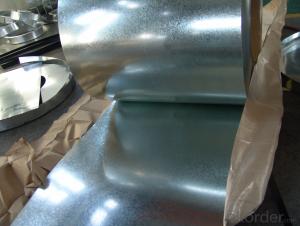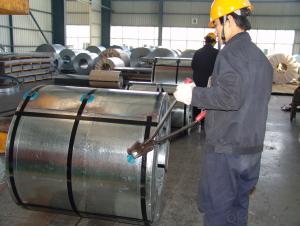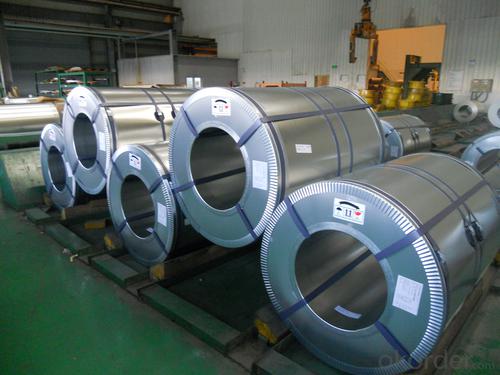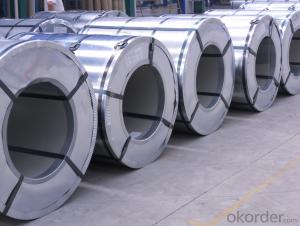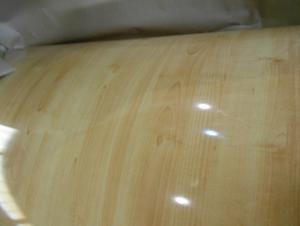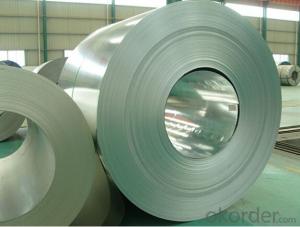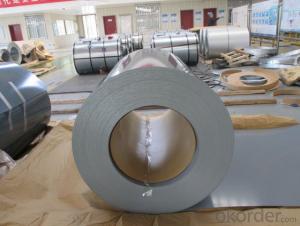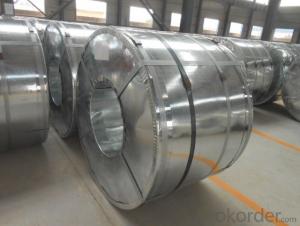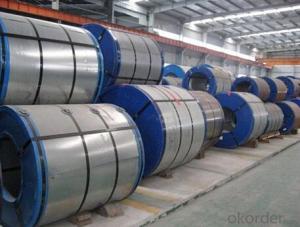Galvanized Steel Coil-JIS G 3302 SGCC-0.5mm*1000mm
- Loading Port:
- Shanghai
- Payment Terms:
- TT OR LC
- Min Order Qty:
- 50 m.t.
- Supply Capability:
- 50000 m.t./month
OKorder Service Pledge
OKorder Financial Service
You Might Also Like
Galvanized steel coils are widely used in the construction industry, as raw material for the production of corrugated panels, fencing products, drywall panel profiles, ventilation systems etc. Recommended for both outside and inside usage, galvanized steel has a high resistance to corrosion in different environments, due to a protective layer of zinc of 100 – 180 grams per square metre.
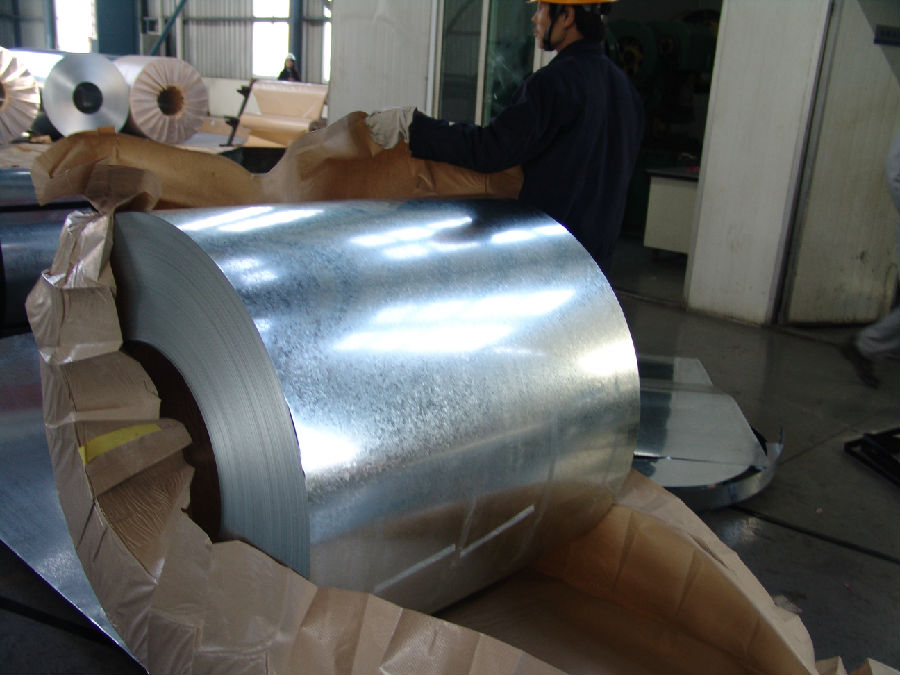
Hotdip galvanized steel coils are produced by immersing steel in a zinc bath. An appropriate galvanizing process requires a pretreatment process during which the steel passes through different baths which prepare the surface for zinc coating. In this stage, chemicals are used to clean the surface of the steel. After the chemical treatment, the steel coils pass through a bath of melted zinc at temperatures around 460 ° C.
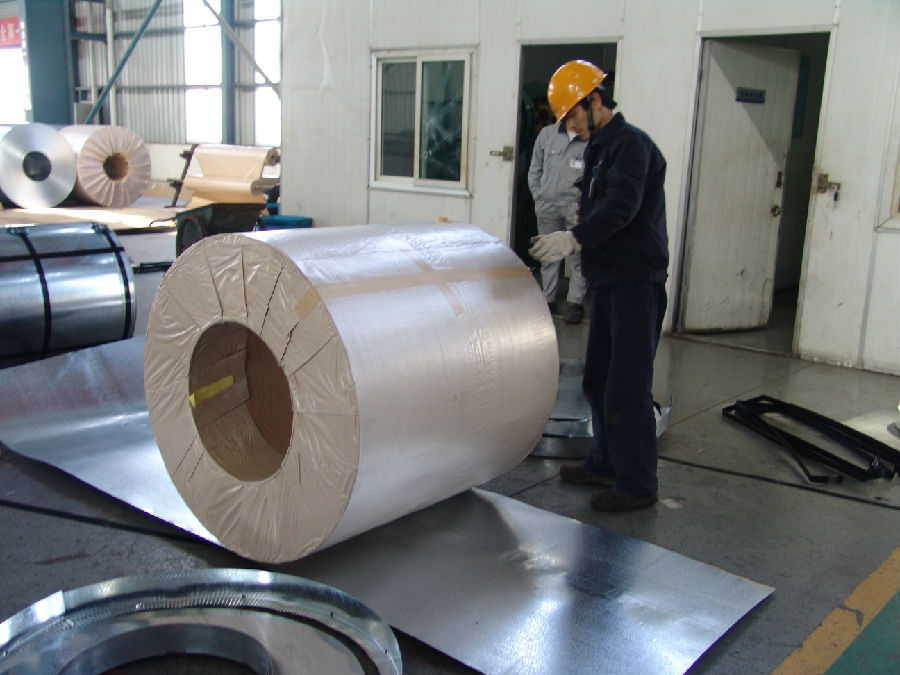
The resulting uniform coating is finished through a process of skinpassing to provide smooth and shiny appearance of the finished product.To store for a longer period, the hotdip galvanized coils can be delivered with a final oil coating, according to the customer’s demand. PROFILAND STEEL produces hotdip galvanized steel coils with very good workability at further cold forming and bending processes.
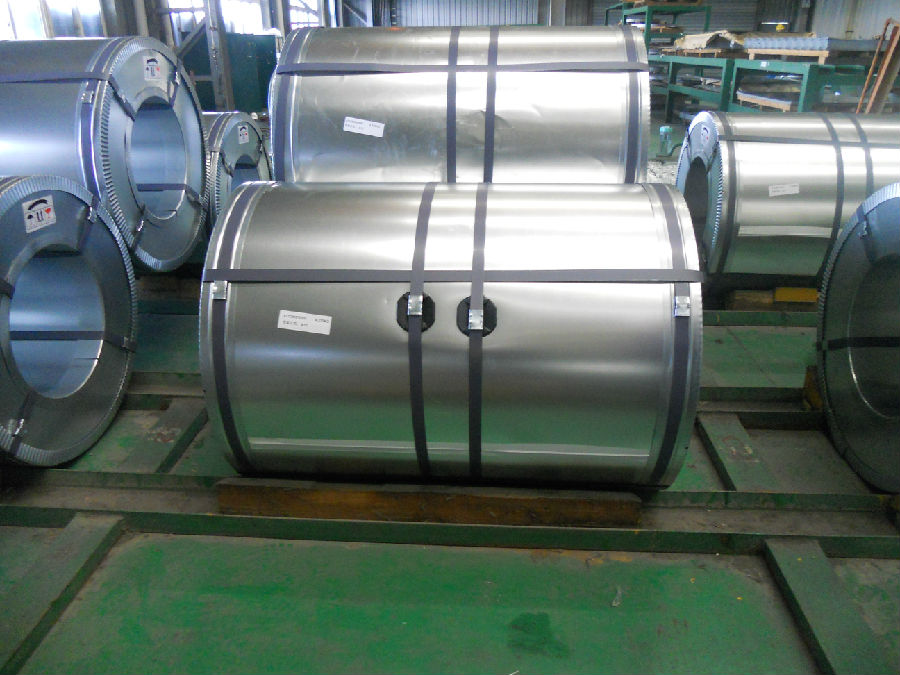
- Q: What is the AISI grade of mild steel that is the most magnetic? What magnetic steels are the cheapest and easiest to buy?
- Iron
- Q: The guy at this one pawn shop told me that stainless steel is better because it is just as strong and will not rust. The guy at the other pawn shop said that you need high carbon steel for a good sword because stainless steel breaks easily and that damascis is the best kind of steel for swords.
- You are gonna want carbon steel. Most real swords are always made from carbon steel. The vast majority of cheap swords being sold online are made from stainless steel. While stainless steel is a great choice for knives, it starts becoming very brittle on anything longer than 12? and is NOT a suitable material for a functional sword, no matter what some marketers might claim?. Stainless steel when it comes to a functioning weapon, is a joke. It's not made to cut and it's not made to last.
- Q: How are steel coils inspected for oil or rust residues?
- Steel coils are typically inspected for oil or rust residues through visual examination, as well as using various testing methods such as wiping the surface with a white cloth to check for any visible stains or residues. Additionally, some inspectors may also use specialized equipment such as ultraviolet lights or moisture detectors to identify any hidden oil or rust contaminants.
- Q: Can steel coils be coated with anti-glare materials?
- Yes, steel coils can be coated with anti-glare materials. Coating steel coils with anti-glare materials helps to reduce or eliminate the reflection of light, improving visibility and reducing eye strain in various applications.
- Q: Can steel coils be coated with decorative designs?
- Yes, steel coils can be coated with decorative designs. This can be achieved through various methods such as painting, printing, or applying specialized coatings. The decorative designs can enhance the aesthetic appeal of the steel coils and be customized according to specific requirements.
- Q: How to solve steel plate storage
- According to the principle of "first in first out" to carry out the turnover, organize the logistics, reduce the large amount of moving plate, reasonable arrangement, easy to steel coil into the use of state.
- Q: How are steel coils used in the manufacturing of construction cranes?
- Steel coils are used in the manufacturing of construction cranes to form the structural components, such as the boom, mast, and jib. These coils are processed and shaped through a series of cutting, bending, and welding techniques to create the strong and durable framework necessary for the crane's operation.
- Q: How do steel coils contribute to the manufacturing of household appliances?
- Steel coils contribute to the manufacturing of household appliances by providing a durable and versatile material for various components. These coils are used to create the outer casings, frames, and structural parts of appliances like refrigerators, washing machines, and dishwashers. The strength and flexibility of steel coils ensure the longevity and stability of these appliances, while also enabling manufacturers to create sleek and attractive designs.
- Q: I need to know what steel's weakness is.
- Steel pokemon have 3 weakness its fighting, Ground and fire attacks
- Q: I know that it is used for katanas and swords but what is it and is it good i am pretty sure that it is the process of the steel but can I have a little more information.
- It's a special type of steel that was made in Syria. It is used to make swords or knives. It's mostly used in Middle East and South Asia.
Send your message to us
Galvanized Steel Coil-JIS G 3302 SGCC-0.5mm*1000mm
- Loading Port:
- Shanghai
- Payment Terms:
- TT OR LC
- Min Order Qty:
- 50 m.t.
- Supply Capability:
- 50000 m.t./month
OKorder Service Pledge
OKorder Financial Service
Similar products
Hot products
Hot Searches
Related keywords
